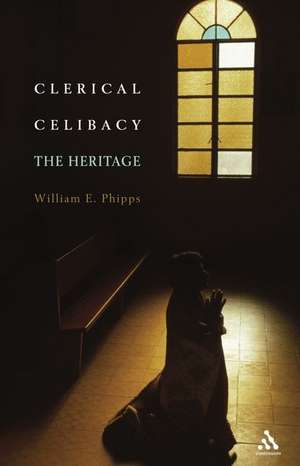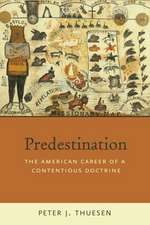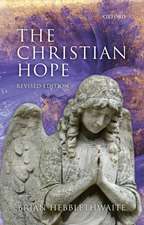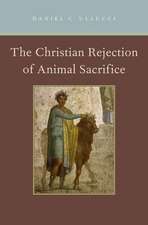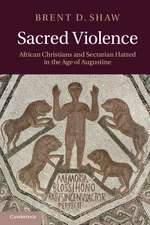Clerical Celibacy: The Heritage
Autor William E. Phippsen Limba Engleză Paperback – 31 mai 2006
Preț: 180.44 lei
Preț vechi: 216.44 lei
-17% Nou
Puncte Express: 271
Preț estimativ în valută:
34.53€ • 36.05$ • 28.51£
34.53€ • 36.05$ • 28.51£
Carte tipărită la comandă
Livrare economică 15-29 aprilie
Preluare comenzi: 021 569.72.76
Specificații
ISBN-13: 9780826418524
ISBN-10: 082641852X
Pagini: 288
Dimensiuni: 158 x 207 x 18 mm
Greutate: 0.43 kg
Editura: Bloomsbury Publishing
Colecția Continuum
Locul publicării:New York, United States
ISBN-10: 082641852X
Pagini: 288
Dimensiuni: 158 x 207 x 18 mm
Greutate: 0.43 kg
Editura: Bloomsbury Publishing
Colecția Continuum
Locul publicării:New York, United States
Caracteristici
A comprehensive account of the Catholic Churchâ?Ts commitment to celibacy, showing that mandatory celibacy is a relatively modern phenomenon in the Church.
Recenzii
"Clerical Celibacy is an overview of the development of the teaching and practice of clerical celibacy in Western Christianity. Phipps' position on the Roman Catholic teaching and practice of clerical celibacy is clear: it has no scriptural foundation; it is a medieval 'innovation' based on economy, discipline and power; it breeds contempt of sexuality and corporeality; it has resulted in 'immorality, criminality, and female subjugation, hypocrisy' and as such is 'a basic misunderstanding of the Gospel'. Webb connects recent abuse scandals within the Roman Catholic Church to teaching and practice of clerical celibacy. Phipps offers important insights into the historical development of clerical celibacy in Western Christianity and raises pertinent questions for the Roman Catholic Church today." -Toronto Journal of Theology
'This is both a history of the origins and development of clerical celibacy, and a polemic against its imposition on the clergy of the Latin Church. Commendably brief, it covers the background of the Jewish society out of which Christianity sprang, and in which marriage seems to have been virtually compulsory; it explores whether Jesus was married or committed to the celibacy that official Roman Catholicism assumes him to have exemplified; and traces the way in which celibacy became roote in the Latin Church, first as an ideal, and subsequently as a condition for entering and exercising the ministry.' -Robert Nowell, Church Times
'This is both a history of the origins and development of clerical celibacy, and a polemic against its imposition on the clergy of the Latin Church. Commendably brief, it covers the background of the Jewish society out of which Christianity sprang, and in which marriage seems to have been virtually compulsory; it explores whether Jesus was married or committed to the celibacy that official Roman Catholicism assumes him to have exemplified; and traces the way in which celibacy became roote in the Latin Church, first as an ideal, and subsequently as a condition for entering and exercising the ministry.' -Robert Nowell, Church Times
